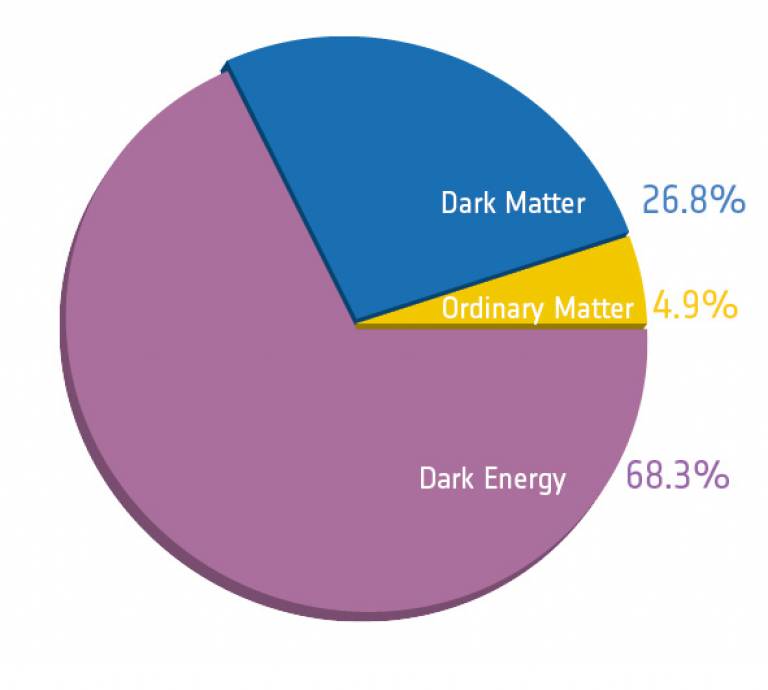In 1929 Edwin Hubble discovered that the Universe is expanding, which led to the Big Bang theory. Gravity was expected to gradually slow the expansion, and might even cause the Universe to collapse back inwards in a "Big Crunch". However, over the past two decades, detailed observations have shown that the Universe appears actually to be accelerating in its expansion. Understanding this surprising observation is one of the biggest challenges in cosmology today. Cosmologists have suggested the existence of a new type of material, "dark energy", to explain the acceleration. If you had a box of this dark energy, and expanded the box, the amount of dark energy would increase to fill the extra space! Furthermore, most of the matter in the Universe is of an unknown form, dubbed "dark matter". Some wonder whether these two mysterious ingredients actually point to a fundamental flaw in Einstein's gravity.

Cosmic makeup. Credit: ESA/Planck
Commonly, Dark Energy is quantified by an equation of state parameter, w, which is the ratio of pressure to density. The case w=-1 corresponds to Einstein's cosmological constant in General Relativity, but in principle w may vary with cosmic epoch, e.g., in the case of scalar fields. Essentially, w affects both the geometry of the Universe and the growth rate of structures. These effects can be observed via a range of cosmological probes, including the Cosmic Microwave Background, galaxy clustering, clusters of galaxies, weak gravitational lensing and Supernovae Ia.
Several new surveys/telescopes are planned to investigate Dark Energy further. These include the Dark Energy Survey (DES) and Euclid, in which UCL is heavily involved. With these surveys we aim to measure the pressure to density ratio w. The most interesting result would be to rule out w=-1, and thus exclude the Cosmological Constant. If we find w<-1 then this would be particularly difficult for theoretical cosmologists to explain. It would imply that if you expand a box of dark energy then not only does the amount of dark energy increase to fill the extra volume, but also the density increases! This would mean that in the distant future dark energy would even tear atoms apart, in a "Big Rip".
 Close
Close

